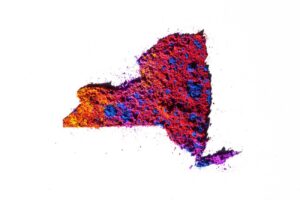AI Proven Effective in Treating Opioid Use Disorder, According to NIH Trial

AI Tools in Addiction Care: Effective Solutions for Healthcare
Introduction to the Study
Recent advancements in artificial intelligence (AI) have made significant strides in various fields, including healthcare. A recent clinical trial supported by the National Institutes of Health (NIH) has demonstrated that an AI-driven screening tool can effectively improve the identification and referral of hospitalized patients at risk for opioid use disorder. This innovative approach mirrors the performance of traditional healthcare providers in recommending addiction specialist consultations, highlighting the potential of AI in enhancing healthcare outcomes.
The Clinical Trial Overview
The study, published in the journal Nature Medicine, involved researchers from the University of Wisconsin School of Medicine and Public Health. The clinical trial aimed to compare the effectiveness of AI-based screening with that of physician-led consultations for individuals diagnosed with opioid use disorder.
- Timeframe: The trial unfolded between March 2021 and October 2023, with two main phases: the initial evaluation of provider-led consultations and the subsequent implementation of the AI screening tool.
- Study Scope: The data comprised 51,760 hospitalizations, with 66% conducted without AI support and 34% with the AI tool.
Results and Findings
The results indicated that the AI tool was as effective as healthcare professionals in initiating addiction consultations. Key findings include:
- Consultation Rates: About 1.51% of patients received consultations via the AI tool, compared to 1.35% through traditional methods.
- Readmission Rates: The trial revealed that patients who underwent AI screening had a notably lower rate of 30-day hospital readmissions—8% for the AI group versus 14% for those who relied solely on provider-initiated consultations.
- Cost Savings: Overall healthcare savings were estimated at nearly $109,000 during the study, with a net cost of $6,801 for each avoided readmission.
How the AI Tool Works
The AI screening tool functions by analyzing patient data in real-time, including clinical notes and medical histories, to identify patterns linked to opioid use disorder. When a patient’s medical chart is opened, the AI system alerts healthcare providers, recommending a consultation with addiction specialists and urging monitoring of withdrawal symptoms.
Expert Commentary
Dr. Nora D. Volkow, Director of the NIH’s National Institute on Drug Abuse, emphasized the importance of integrating AI technologies in addiction care, particularly in busy hospital settings where traditional screening can often be neglected. Her observations underline the potential for AI to improve treatment access while streamlining hospital workflows.
Challenges in Implementation
While the results are promising, the study authors caution about the challenges that may arise with AI integration in healthcare:
- Provider Alert Fatigue: Frequent alerts from the AI system might overwhelm healthcare professionals, potentially leading to missed opportunities for patient care.
- Need for Broader Validation: The tool’s effectiveness must be further validated across diverse healthcare settings to understand its full potential and limitations.
The Impact of the Opioid Crisis
The ongoing opioid crisis continues to burden healthcare systems across the United States. Recent statistics indicate a near 6% increase in emergency department admissions for substance use disorders, amounting to around 7.6 million visits. Despite the notable rise in opioid-related cases, screening practices remain inconsistent, resulting in many patients discharged without the necessary addiction care.
Future Directions
As AI technology continues to evolve, ongoing research is essential to optimize its integration into healthcare and evaluate its long-term effects on patient outcomes. The goal is to leverage AI capabilities to enhance early intervention, improve access to treatment, and ultimately address the critical gaps in addiction care.
Available Resources for Help
If you or someone you know is struggling with substance use issues, support is accessible. Call or text 988, or visit 988lifeline.org for immediate assistance. Additional resources for mental health and addiction support can be found at FindSupport.gov. For treatment facility information, you can visit FindTreatment.gov or call 800-662-HELP (4357).






